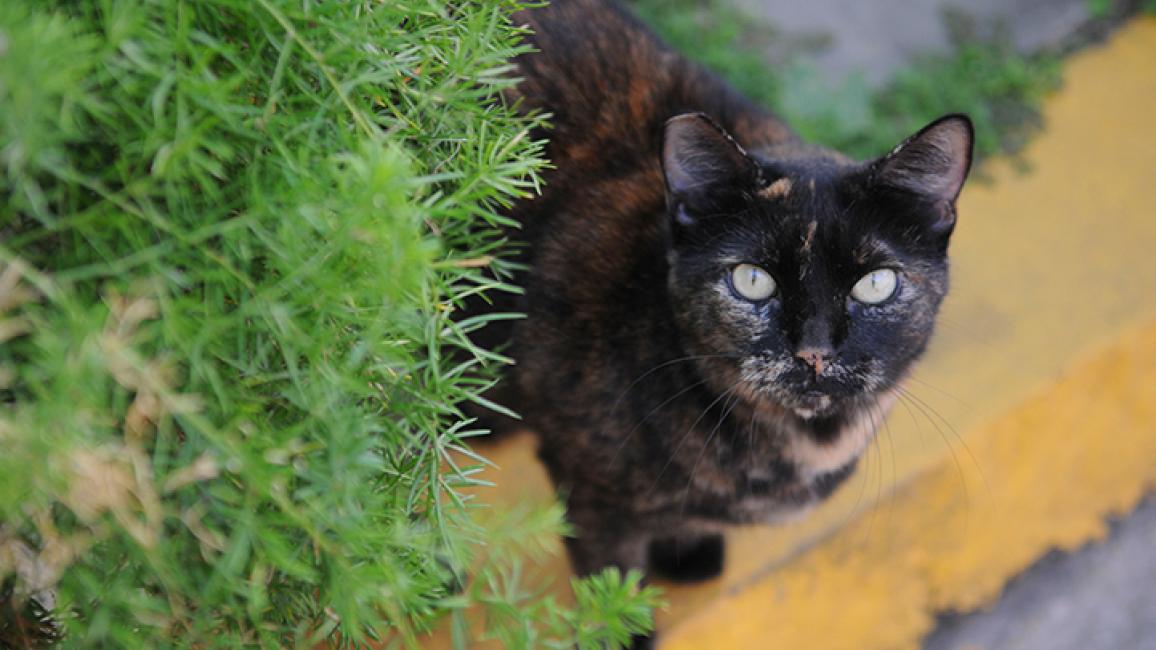New Utah legislation to help cats and save money

Amid the controversy over a piece of legislation that would allow people to kill animals they believe to be feral, Best Friends Animal Society announces its endorsement of a different bill that could save thousands of pets' lives instead of possibly putting them in danger.
Proposed trap/neuter/return legislation in Utah
Senate Bill 57, sponsored by State Senator Dennis E. Stowell (R-Parowan) allows municipal or community animal control officers to bypass a three-day holding period for animals taking part in a local community cat management initiative, where felines are captured, spayed/ neutered and released in their original location.
Current disposition options are limited to humane euthanasia or adoption and as it stands, adoption - the preferred choice for homeless animals - is rarely an option for free-roaming cats, which routinely are euthanized for lack of alternatives.
"I'm happy to work with Best Friends on this bill, which through trap/neuter/return provides local government with an effective, humane tool to deal with free-roaming cats," said Sen. Stowell. "It will reduce cost to taxpayers and will help reduce feral cat populations - without having to kill them."
Best Friends' support of bill
Gregory Castle, chief executive officer of Kanab-based Best Friends Animal Society, said S.B. 57 would not only save lives, but also recognize the important role that colonies of sterilized, vaccinated cats play in reducing the cost to municipalities dealing with cats entering animal shelters each year.
"Sen. Stowell's forward-thinking community cat bill will help ease pressure on Utah's overburdened shelters where about 20,000 cats and kittens enter each year," Castle said. "It will be more cost-effective than the annual killing of thousands of cats and provide communities with a proven, humane approach to lowering the populations of homeless or unclaimed cats."
Good Samaritans routinely care for community cats in their neighborhoods and this bill will help ensure that these cats are sterilized and vaccinated, Castle said. 
"The high numbers of cats being trapped and killed in our shelters each year make it clear that catch and kill is not effective. TNR is the only program that has shown to result in a decrease in the number of animals entering shelters. Catch and kill models are reactive, costly and offer no long term solution to the problem. Our agency is funded through tax dollars and we have a responsibility to look for proactive programs that provide long term solutions to issues, today that program is TNR for community cats," shared Shawni M. Larrabee, Director of Salt Lake County Animal Services.
As proposed, S.B. 57 deals with the disposition of unidentified, unclaimed stray cats by introducing the concept of a "community cat management initiative," where cats in the colony are trapped, spayed/neutered, vaccinated, ear-tipped for identification, and then released back in their original location-a procedure commonly called trap/neuter/return (TNR). The bill allows for ear-tipped cats in a TNR program to be returned immediately to their colonies without being held in the shelter for the current, mandatory three-day holding period.
In contrast, Castle said he is "deeply concerned" about House Bill 210, introduced by Rep. Curt Oda (R-Clearfield), which would allow any member of the public to shoot or otherwise humanely dispose of animals deemed feral.
"Shooting animals on sight is cruel, inhumane and wrong," said Castle. "It"s also a possible threat to public safety and there is very real risk that family pets could be killed by mistake. Allowing people to shoot at stray dogs or cats could through accident become a human tragedy as well."
Management of cat colonies with TNR
Several Utah municipalities already have committed funding for the TNR method of managing cat colonies: Salt Lake City, St. George, Ivins, West Valley City, Hyrum and Moab, as well as unincorporated Salt Lake County.
In 2008, Best Friends, through its No More Homeless Pets in Utah organization, started a TNR program in partnership with Salt Lake City and Salt Lake County Animal Services. As a result, during a three-year period (2008, 2009 and 2010), the cat euthanasia rate dropped 146 percent and the program is estimated to have saved Salt Lake City more than $67,000 in costs that would normally accrue for impounding, board, euthanasia and disposal fees.
Best Friends Animal Society, through its national outreach program, has a model TNR program in place with the City of Jacksonville, Fla., where city/county government is under one umbrella. The program saves the city about $175,000 each year because sterilized cats are unable to reproduce. As a result, there are fewer cats being picked up each year.
In addition, Best Friends works with approximately 40 communities in Southern Utah on community cat initiatives, resulting in thousands of cats and kittens being spayed or neutered every year.
Best Friends, along with other national animal-welfare organizations and thousands of people at the grassroots level, utilize TNR as the best and humane way to control feral cat populations. This proven program accomplishes the following:
- TNR promotes public health by reducing the number of unvaccinated cats.
- Sterilizing community cats alleviates nuisance propensities, thus reducing complaints from community members.
- TNR programs often are supported financially by nonprofit organizations, foundations and charitable individuals. They do not rely solely on taxpayers for funding.
Get Involved to help animals
- Follow SB 57.
- Contact your Utah officials to let them know you support SB 57!
- Sign up to join the Best Friends Legislative Action Center. The Best Friends Legislative Action Center gives you the tools to let your voice be heard to help animals through proper legislation.
Images by Best Friends Animal Society